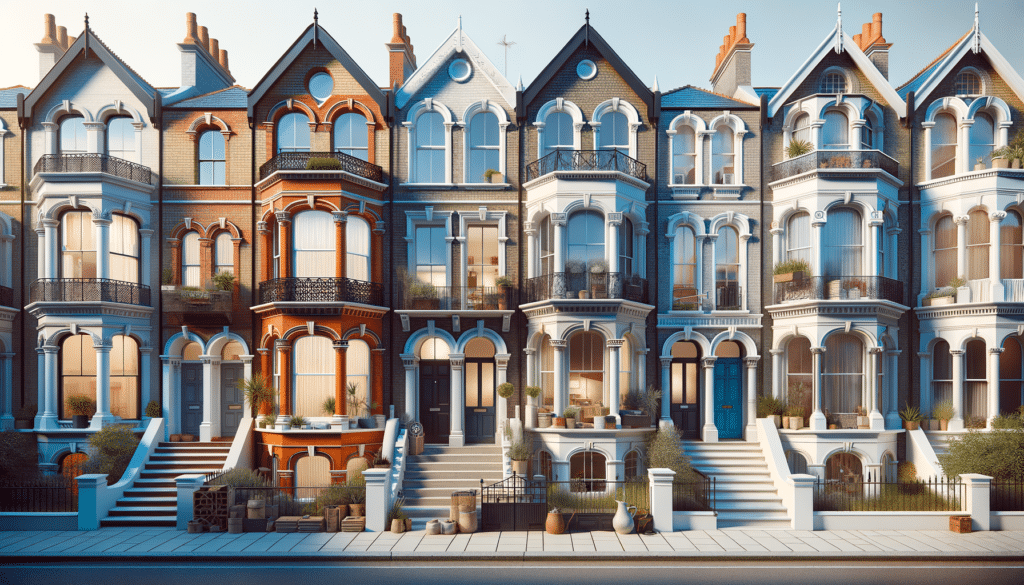The Appeal of Affordable Housing in Serbia
In recent years, Serbia has emerged as a captivating destination for individuals seeking affordable real estate opportunities. The allure of purchasing a home in this picturesque Balkan country lies not only in its charming landscapes and rich cultural heritage but also in the cost-effectiveness it offers. The Serbian real estate market presents a unique blend of affordability and potential for growth, making it an attractive option for both local and international buyers. With its strategic location in Southeast Europe, Serbia serves as a gateway between the East and West, enhancing its appeal as a residential and investment hub.
One of the key factors contributing to the affordability of homes in Serbia is the relatively low cost of living compared to Western European countries. This affordability extends to the real estate market, where buyers can find a range of options that suit various budgets. Additionally, the Serbian government has implemented policies to encourage foreign investment, further boosting the real estate sector. These policies include simplified procedures for property acquisition and incentives for investors, making it easier for potential buyers to navigate the market.
Moreover, Serbia’s diverse geography offers something for everyone, from vibrant city life in Belgrade to the serene countryside in regions like Vojvodina. This diversity allows buyers to choose from a variety of settings, whether they prefer the bustling urban environment or the tranquility of rural living. As the country continues to develop its infrastructure and improve connectivity, the potential for property value appreciation remains promising, adding an extra layer of attractiveness to investing in Serbian real estate.
Understanding the Real Estate Market in Serbia
To make informed decisions when purchasing affordable homes in Serbia, it is essential to understand the dynamics of the local real estate market. The market is characterized by a mix of residential properties, including apartments, houses, and rural estates. Each type of property offers distinct advantages, depending on the buyer’s preferences and lifestyle choices.
Apartments in cities like Belgrade and Novi Sad are popular among young professionals and families due to their proximity to amenities and employment opportunities. These urban centers boast a vibrant social scene, cultural attractions, and educational institutions, making them ideal for those seeking a dynamic lifestyle. On the other hand, rural properties appeal to individuals looking for a more peaceful and secluded environment, often at a lower cost than urban dwellings.
When exploring the Serbian real estate market, it is crucial to consider factors such as location, property condition, and legal regulations. Location plays a significant role in determining property value, with urban areas generally commanding higher prices than rural ones. Buyers should also assess the condition of the property and any renovation needs, as this can impact the overall investment.
Understanding the legal framework surrounding property acquisition in Serbia is equally important. Engaging with a local real estate agent or legal expert can provide valuable insights into the process, ensuring a smooth and transparent transaction. These professionals can assist with due diligence, verifying property ownership, and navigating the necessary paperwork, allowing buyers to make confident decisions.
Comparing Urban and Rural Living in Serbia
Serbia offers a unique opportunity to choose between urban and rural living, each with its own set of advantages and lifestyle considerations. Urban living in cities like Belgrade and Novi Sad provides access to a wide range of amenities, including shopping centers, restaurants, and entertainment venues. These cities are also cultural hubs, hosting numerous events, festivals, and exhibitions throughout the year, making them vibrant places to live.
For those who thrive in a fast-paced environment, urban areas offer excellent connectivity and public transportation options, facilitating easy access to various parts of the city. The presence of international schools and universities also makes urban living appealing to families and students.
In contrast, rural living in Serbia offers a tranquil and serene lifestyle, surrounded by nature and picturesque landscapes. Rural areas provide an escape from the hustle and bustle of city life, allowing residents to enjoy a slower pace and a stronger sense of community. The cost of living is generally lower in rural regions, and properties often come with larger plots of land, offering opportunities for gardening or small-scale farming.
Ultimately, the choice between urban and rural living in Serbia depends on individual preferences and priorities. Some may prioritize the convenience and excitement of city life, while others may value the peace and natural beauty of the countryside. Regardless of the choice, Serbia’s diverse landscape ensures that there is something for everyone.
Investment Potential and Future Prospects
The Serbian real estate market presents significant investment potential, driven by various factors that contribute to its growth prospects. One of the primary drivers is the country’s strategic location, which positions it as a key player in the region’s economic development. As Serbia continues to strengthen its infrastructure, including transportation networks and digital connectivity, the demand for real estate is expected to rise.
Foreign investment is another crucial factor influencing the real estate market in Serbia. The government’s commitment to creating a favorable investment climate has attracted international investors seeking opportunities in the residential and commercial sectors. The influx of foreign capital has led to the development of modern residential complexes, office spaces, and retail centers, further enhancing the market’s appeal.
Additionally, Serbia’s growing tourism industry contributes to the demand for real estate, particularly in popular tourist destinations such as Kopaonik and Zlatibor. The increasing number of visitors has created opportunities for short-term rental investments, providing attractive returns for property owners.
As Serbia continues to integrate with the European Union and strengthen its economic ties with neighboring countries, the real estate market is poised for sustained growth. Investors looking for affordable yet promising opportunities should consider Serbia as a viable option, given its potential for value appreciation and long-term returns.
Practical Tips for Buying Property in Serbia
For those considering purchasing a home in Serbia, there are several practical tips to ensure a successful and stress-free experience. First and foremost, conducting thorough research is essential. Prospective buyers should familiarize themselves with the local market trends, property prices, and legal requirements to make informed decisions.
Engaging the services of a reputable real estate agent can provide invaluable assistance throughout the buying process. These professionals possess in-depth knowledge of the market and can help identify suitable properties that match the buyer’s preferences and budget. They can also facilitate negotiations and ensure that all legal aspects are handled appropriately.
Buyers should also consider the importance of conducting a property inspection before finalizing the purchase. This step helps identify any potential issues or necessary repairs, allowing buyers to make informed decisions and negotiate terms accordingly.
Understanding the legal framework is crucial when buying property in Serbia. Foreign buyers should be aware of any restrictions or requirements, such as obtaining necessary permits or registering the property with local authorities. Consulting with a legal expert can provide clarity and ensure compliance with all legal obligations.
Finally, buyers should be prepared for additional costs associated with property acquisition, such as taxes, notary fees, and registration expenses. Factoring these costs into the budget will help avoid any financial surprises and ensure a smooth transaction process.





